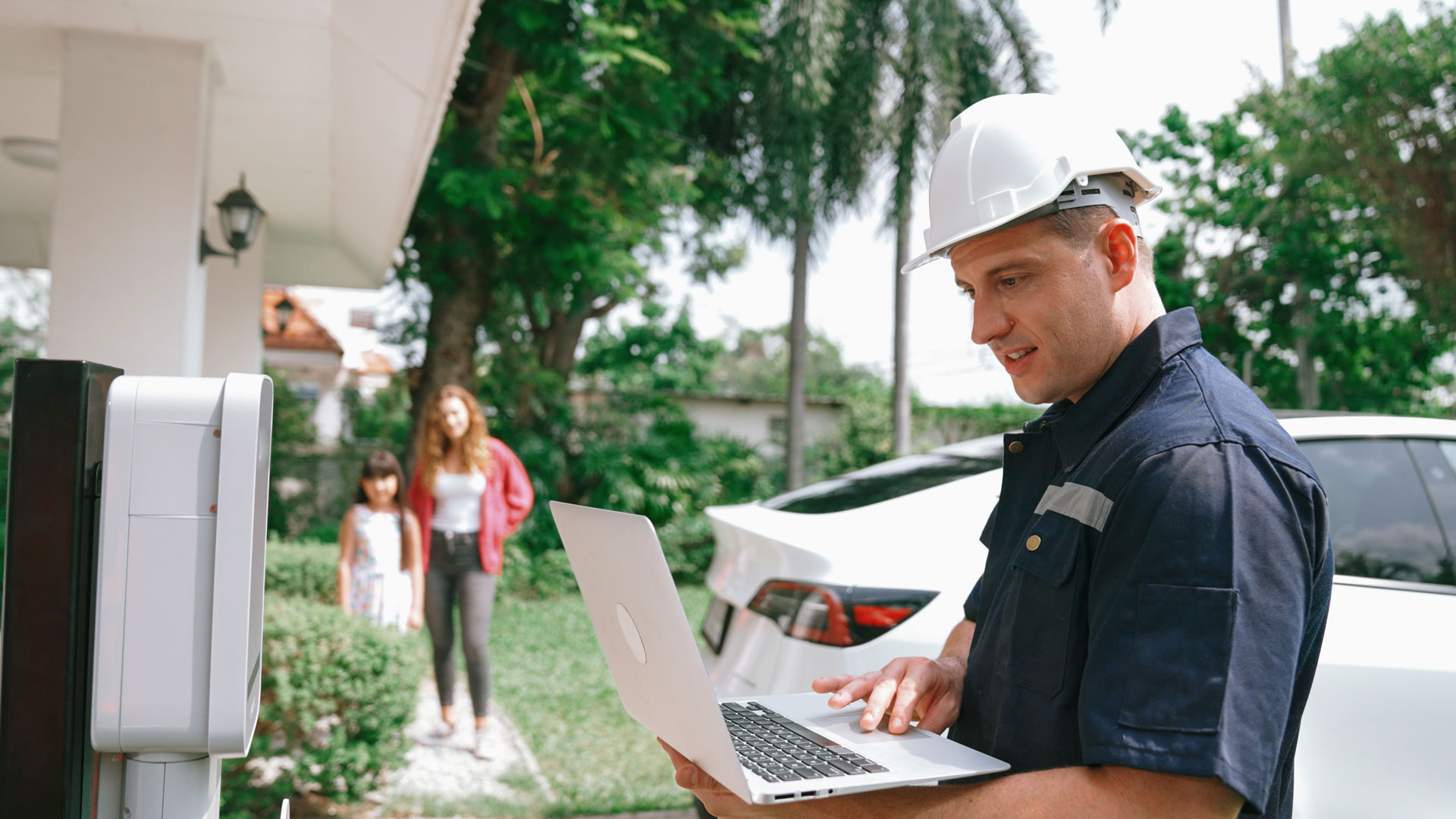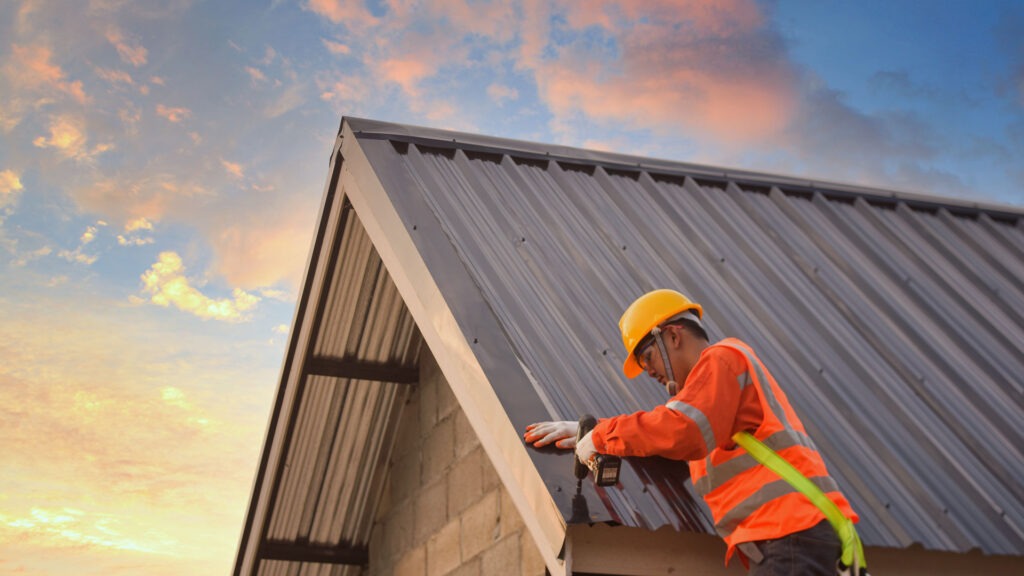Home Inspections In Florida: What Is A 4 Point Home Inspection?

If you live in Florida, you may have heard about people getting home inspections. There are two types of inspections: Full Home Inspections and 4 point inspections.
Now, you may be wondering “What is a 4 point home inspection?” Learn all about this inspection and why you might need it. So why wait? Read on!
When to Consider a 4-Point Inspection
If you’re buying a new home insurance policy or renewing an old one, the insurance company might ask for a 4-point inspection.
This is their way of making sure the main systems in your home aren’t too old or in bad condition, which could lead to big problems later on.
It’s a shorter, quicker check-up that takes about an hour or two. It’s also less expensive than a full inspection, so it’s a good choice if you just need to satisfy insurance requirements.
Understanding the Home Inspection Process
In a 4-point home inspection, home inspectors come to a house to search for any signs that something might not be right. Let’s explore the four major parts of the house they focus on.
Roof Inspection

The first step is looking at the roof. The inspector will climb up there and check for broken tiles or shingles, leaks, or any wear and tear that could cause problems.
Checking the Electrical System
Next, they’ll move on to the electrical system. This includes all the wires running through the walls, the outlets where you plug in your TV, and the switches that turn lights on and off.
They need to make sure everything is installed correctly and that there’s no risk of an electrical fire or shock. It’s like making sure all the wires in your gadgets are hooked up right so they work properly.
Inspecting the Plumbing
Then, the inspector looks at the plumbing. This is all about the pipes, faucets, and toilets. They’ll check for leaks, rust, and other issues that could mean the plumbing isn’t working as it should.
Assessing Heating and Cooling Systems
Finally, they’ll examine the heating and cooling (HVAC) system. The inspector will take temperature and humidity readings. They will also take a look at the furnace, air conditioning, and air dispersal systems.
A HVAC inspection will check to see that these systems are not only functioning but also won’t break down when you most need them.
How to Prepare For a 4-Point Inspection In Florida
The inspector’s job is to check various parts of your house to make sure everything is in good shape. To help them do this, you’ll need to do a few simple things.
Clear the Path
Firstly, ensure that they can easily access all the areas they need to look at. This means clearing away any clutter or obstacles that might be in the way.
For example, if they need to check your water heater, make sure there’s a clear path to get to it. This helps the inspector move through your home efficiently and safely.
Turn On Utilities
Next, it’s important to have your utilities running. If your electricity or water is turned off, make sure to turn them back on before the inspector arrives.
They need to see that things like your air conditioning and faucets are working correctly. If the gas is off, turn that on too, so they can check your stove and heating system.
Be Honest About Issues
If you’re aware of any problems in your home, it’s best to be upfront about them. Let the inspector know so they can take a closer look. This could be anything from a leaky faucet to a door that won’t close properly.
What Is A Full Home Inspection
There are two main types of Home Inspections: the four-point inspection and the full inspection. Since we’ve already discussed the 4 point inspection, let’s take a look at the other main type of inspections.
A Comprehensive Look At Your Home
When you’re buying a home, you’ll want to go for the full home inspection. This is a deep dive into the condition of the house. Inspectors will look at the roof, foundation, walls, electrical systems, plumbing, and much more.
They’ll also check appliances and even look for pests. This type of inspection takes several hours and gives you a detailed report on everything they find.
It’s more costly than a 4-point inspection, but it gives you the complete picture of what you’re getting into with your new home.
What Is The Difference Between a 4-Point Home Inspection And A Full Home Inspection?
The 4-point home inspection examines four critical systems: roofing, plumbing, electrical, and HVAC.
In contrast, a full-scale inspection provides a comprehensive evaluation of the entire property, including structural elements, interior components, and exterior conditions.
Thus, the main difference lies in the scope and detail of the assessment.
How To Decide Between These Two Inspections?
In order to determine which inspection is best suited for you, you need to take a look at your situation. If you’re getting insurance coverage for an older home, the 4-point inspection is likely what you need.
But if you’re in the home buying process and want to know all about the house before you move in, the full-scale inspection is the way to go.
What Is The Wind Mitigation Inspection?
A wind mitigation inspection is a comprehensive evaluation of a property’s structural features that enhance its resistance to wind damage.
It aims to identify specific elements, such as roof shape, reinforcement methods, and window protection. These may reduce potential losses during severe weather events.
Since thunderstorms and harsh weather events are common in Florida, many insurance providers require this inspection.
Why Are These Inspections Good?
These inspections are actually pretty good for your home. Let’s see why.
Quick Snapshot of Your Home’s Health
The point of this inspection is to identify any issues with four key parts of your house. It gives a quick update on the state of your home. It’s faster than a full-scale examination and costs less, making it a smart choice for homeowners.
Prevent Problems Before They Grow
Early detection is your best defense against big, costly repairs. This inspection can spot small fixes in your home before they become big problems.
It’s a proactive step that can help you avoid the disruption and expense of major repairs.
If the inspection reveals water damage or fire hazards you can address these issues promptly, ensuring your home stays in tip-top shape and improving your home safety.
Confidence for You and Your Insurer
Having this inspection done can also provide peace of mind for both you and your insurance provider.
Florida Homeowners insurance companies often favor homes that are well-maintained because they pose less risk. When your home passes this inspection, it shows that you’re on top of things, which can make insurance providers more confident in offering you coverage.
Save Money on Insurance
Lastly, a positive inspection report can sometimes lead to savings on your homeowners insurance and a better insurance quote.
When insurance companies see that your home’s critical systems are in great shape, they may view your house as a lower risk for claims, as the level of risk involved is greatly reduced.
This could result in lower insurance premiums for you, which means more money in your pocket.
Final Thoughts: Getting a Four Point Inspection In Florida
You might need one of these inspections if your house is getting older, like more than ten years old, or if you’re changing insurance companies.
When obtaining insurance for a new home, you may need a thorough inspection. Check with your insurance agent to confirm the requirements, as insurance companies often require some other types of property inspections as well.



